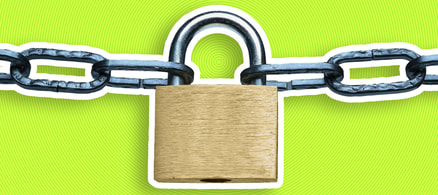Anti-money laundering
All federally-regulated banks are required by law to report major money transactions to the Financial Crimes Enforcement Network, or FinCEN, which is a bureau of the U.S. Department of the Treasury.
While there is “no general prohibition against handling large amounts of currency,” according to FinCEN, banks are still required to report all currency transactions (deposits, withdrawals, exchanges of currency or another payment or transfer) over $10,000 in a single day (by or on behalf of one person) through what is known as a Currency Transaction Report (CTR).
“If you walk into a bank and withdraw more than $10,000 or you deposit [$10,000], it’s just a report that gets sent,” Dean explained. “It’s not like you’re doing a crime or anything; it’s tracking more than $10,000 in currencies transacted through a bank.”
CTRs are required under the Bank Secrecy Act (BSA) and they were established, per FinCEN, to “safeguard the financial industry from threats posed by money laundering and other financial crime.”
To comply with the CTR law, financial institutions must collect certain information from you, including your Social Security number and a copy of your driver’s license or other government-issued ID.
Streamline your debt repayment
Having a single loan to pay off makes it easier to manage your payments, and you can often get a better interest rate than what you might be paying on credit cards and car loans.
Fiona is an online marketplace offering personalized loan options based on your unique financial situation.
When you consolidate your debt with a personal loan through Fiona, you can roll your payments into one monthly installment. Find a lower interest rate and pay down your debt faster with Fiona today.
Find your rateDon’t try to dodge the CTR
Several commenters on Alexis and Dean’s video asked what would happen if they tried to avoid the $10,000 CTR threshold by depositing just under that amount in cash or breaking their deposits down into smaller chunks.
That is called “structuring” and it could trigger your bank into filing a Suspicious Activity Report (SAR).
“Structuring” could occur through something as simple as selling your car for $15,000 and then depositing the cash in two $7,500 batches on the same day — one in the morning and one in the afternoon — to two different bank employees.
If you’re found guilty of “structuring,” you could face civil and criminal penalties, including imprisonment for up to five years and a fine of up to $250,000.
But as Dean pointed out: “All these CTRs and SARs are meant, at the end of the day, for anti-money laundering purposes.”
He added, “The bottom line is this: if you’re not doing anything illegal or participating in anything illegal, go about your business. If you have a lot of cash to deposit, go about your business, just do it. You’re not doing anything illegal.”
If you’re not sure about how to deposit a large sum of cash or how long that deposit may take to clear, contact your bank and ask about their processes. If this is a situation you find yourself in regularly, you may want to consult with a financial advisor who can help you manage your money and make it grow.
Sponsored
Follow These Steps if you Want to Retire Early
Secure your financial future with a tailored plan to maximize investments, navigate taxes, and retire comfortably.
Zoe Financial is an online platform that can match you with a network of vetted fiduciary advisors who are evaluated based on their credentials, education, experience, and pricing. The best part? - there is no fee to find an advisor.







